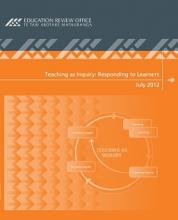Strengthening curriculum: inquiry maths
An analysis of achievement data and a desire to introduce more culturally responsive pedagogies into the classroom were triggers for introducing an inquiry -based approach to the teaching of mathematics at Manurewa Central School.





